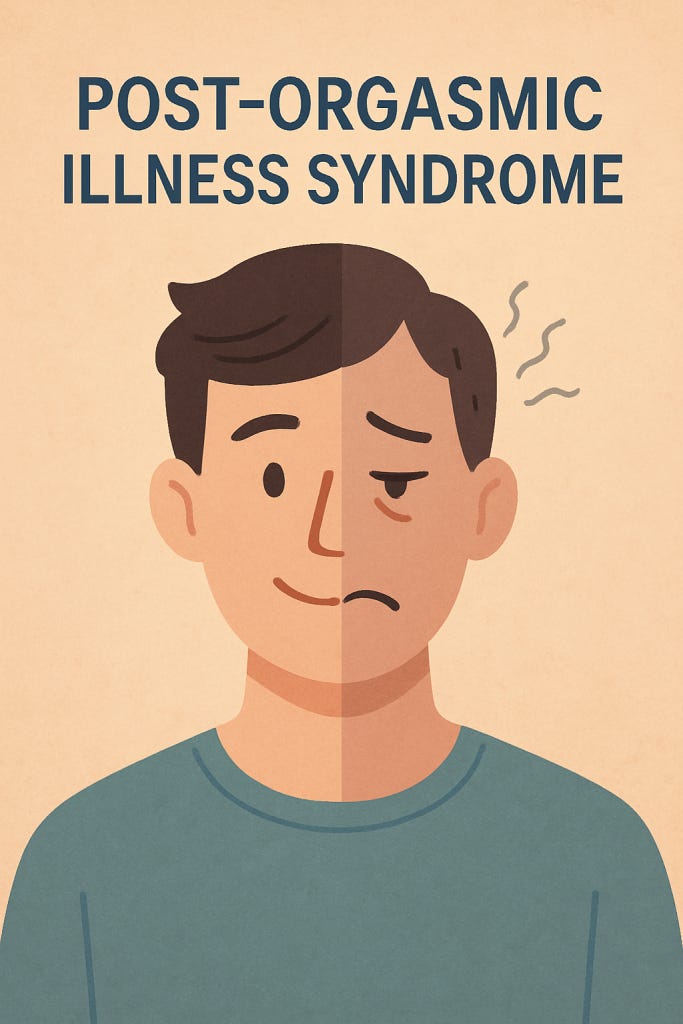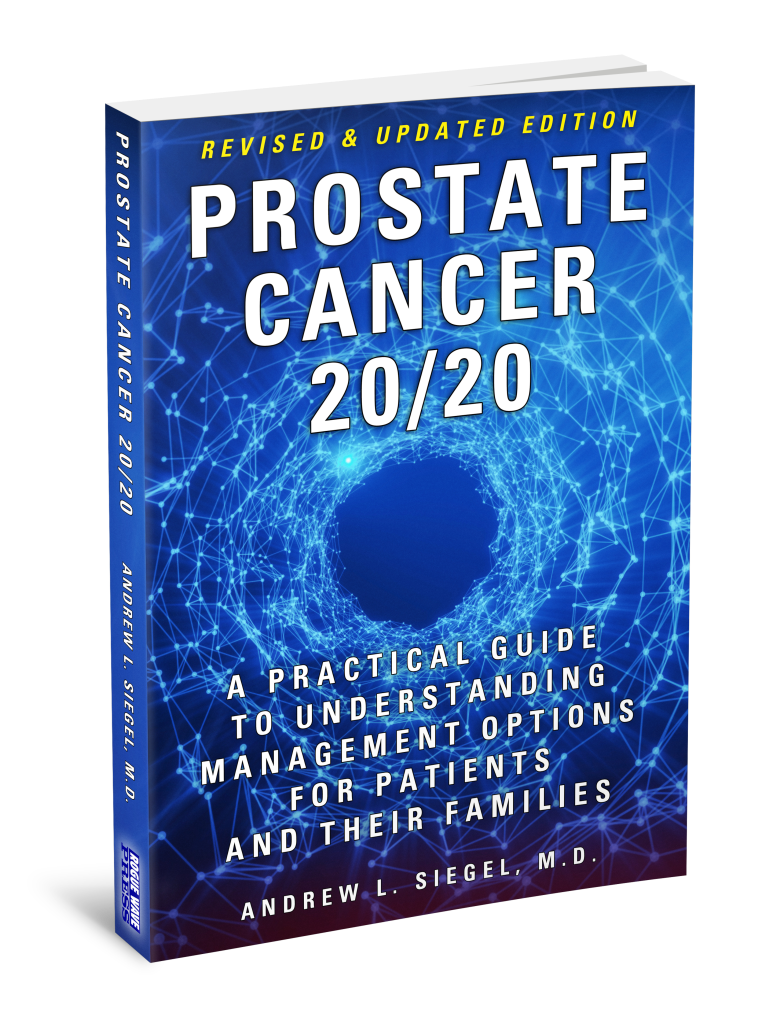Hello, Health Enthusiasts!
Welcome to this week’s installment of our Informative Health Blog, lovingly written by yours truly and posted every Saturday morning, my attempt to keep you informed, entertained, and hopefully learning something new! If health blogs aren’t your thing, you can easily opt out. But if there’s a topic you’d love to see covered, drop me a line.
Stay healthy, stay curious, and as always, thanks for reading!
By the way, our busy urological practice is always on the lookout for medical assistants and medical scribes to join our team. Most of our scribes are gap year college graduates taking a year off before applying to medical school or physician assistant school. If you know of anyone interested, please have them send their resume to practice manager Elias Gomez: EGomez@summithealth.com.
Warm regards,
Andrew Siegel MD
Unhappy Ending: Post-Orgasmic Illness Syndrome
Yes, this is a real condition—and no, I’m not making this up.
Imagine this: You just had a moment of passion, everything's supposed to feel great, right? But instead of basking in the afterglow, you feel like you’ve been hit by the flu, have brain fog, muscle pain, fatigue, distress, and sorrow… for days. Welcome to the mysterious world of Post-Orgasmic Illness Syndrome (POIS).
What is POIS?
POIS is a rare and baffling debilitating condition where men (and in some cases, women) experience a constellation of flulike and allergic symptoms after sexual climax—whether from sex, masturbation, or even a nocturnal emission. The symptoms often show up within minutes to hours and can last up to a week before disappearing spontaneously.
Common symptoms include extreme fatigue, brain fog or trouble concentrating, muscle aches, flu-like symptoms, and mood disturbances including anxiety, irritability, or depression. It’s like your immune system got mad about the fun you just had. The psychological consequences of POIS can be significant both for men experiencing the problem as well as their partners.
What Causes It?
The exact cause isn’t nailed down. But researchers suspect that it is most likely an auto-immune response triggered by specific cytokines (signaling proteins) released in response to a substance present in semen. Other possibilities include an allergic inflammatory reaction to a component of semen, a hormonal imbalance, or neurological misfiring.
How is it Diagnosed?
Mostly through clinical history. There’s no official test—yet. A urologist, allergist, or neurologist might get involved to rule out other conditions.
Sometimes a semen skin-prick test is done (yes, really) to see if there’s an allergic response. It’s as awkward as it sounds. One’s semen is diluted, injected subcutaneously (kind of like a TB test), and the skin reaction observed as compared to a placebo.
Treatment Options?
There’s no universal cure, but some patients get relief from antihistamines if an allergic component is suspected. Certain antidepressants such as SSRIs have shown some utility for mood and nervous system regulation. Non-steroidal anti-inflammatory medications such as ibuprofen may be of benefit. Hypo-sensitization to desensitize the reaction to semen is a possibility. This involves repeated intracutaneous injections of one’s own semen with increased concentrations over time. Celibacy is a sad but effective option for managing the issue. Some also experiment with diet, supplements, or timing sexual activity around when they can afford to feel unwell (i.e., not right before a big work meeting).
Should You Be Worried?
Only if you’re having symptoms. POIS is super rare, and most people have never heard of it (and never will). But if someone feels physically awful after sex—consistently—it’s worth talking to a doctor. No need to suffer in silence, or worse, Google your way into panic.
Bottom Line: If your body's post-game reaction feels more viral outbreak than victory lap, when ejac-“elation” becomes ejac-“misery,” it’s not just in your head. POIS is a real, albeit rare, condition that deserves more research and awareness. And hopefully, one day—better treatment. Until then, if your climax comes with a crash, don’t be embarrassed. Talk to your urologist. Or at least bookmark this blog so you know you’re not alone.
Wishing you the best of health,
Dr. Andrew Siegel is a physician and urological surgeon who is board-certified in urology as well as in female pelvic medicine and reconstructive surgery. His mission is to “bridge the gap” between the public and the medical community.
He is an Assistant Clinical Professor in the Department of Urology at Hackensack Meridian School of Medicine and is a Castle Connolly Top Doctor New York Metro Area, Inside Jersey Top Doctor and Inside Jersey Top Doctor for Women’s Health. He is a urologist at New Jersey Urology, a Summit Health Company.
Dr. Siegel is the author of several books. The second edition of his prostate cancer book is available in print and Kindle formats at Amazon: Prostate Cancer 20/20: A Practical Guide to Understanding Management Options for Patients and Their Families. The audiobook version is available at Amazon: Prostate Cancer 20/20 Audiobook.
Video trailer for Prostate Cancer 20/20
Preview of Prostate Cancer 20/20
Andrew Siegel MD Amazon author page
Dr. Siegel’s other books:
THE KEGEL FIX: Recharging Female Pelvic, Sexual, and Urinary Health
MALE PELVIC FITNESS: Optimizing Sexual and Urinary Health
PROMISCUOUS EATING: Understanding and Ending Our Self-Destructive Relationship with Food








